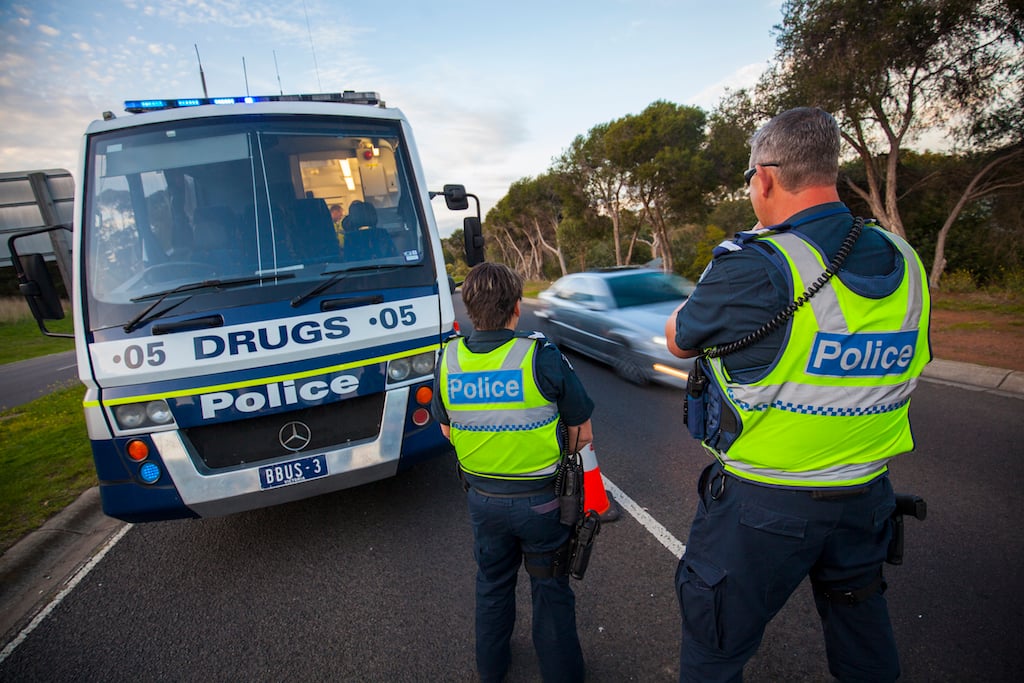So, Turns Out Those Mobile Drug Tests Police Love So Much Might Be Hugely Unreliable
And they're gonna waste a cool $8 million on them.

If you’re pulled over for a mobile drug test (MDT) in NSW, you’ll be tested with one of two devices — the Securetec DrugWipe, or the Draeger DrugTest 5000. But new research by the University of Sydney has raised serious questions about the devices’ accuracy, showing that up to 10 percent of people who test positive to THC may not be under the influence of cannabis at all.
Ten thousand people in NSW were prosecuted in 2016 for cannabis use while driving, after being tested by two different mobile drug testing devices that continue to be used today. The number of mobile drug tests being conducted each year continues to rise, with the NSW Police planning to conduct 200,000 in 2020 at a cost of $40 each.
We all know how breath testing works: if a driver has a blood-alcohol level of more than o.o5 percent, a breathalyser can pick it up. Likewise, the “Securetec DrugWipe” and “Draeger DrugTest 5000” devices are being used to detect THC in saliva. If the device flags THC levels over a specific amount, the test comes back positive.
As well as a false-positive rate of up to 10 percent, false-negatives results are also surprisingly common. In up to 16 percent of those tested, high concentrations of THC (that definitely existed) weren’t detected.
“Detecting impairment due to cannabis use is an important goal in promoting road safety,” said Professor Iain McGregor, academic director of the Lambert Initiative for Cannabinoid Therapeutics and senior author of the research. “But using saliva tests to do this appears fraught with issues.”
The study, led by PhD student Thomas Arkell, was part of a more extensive study looking at the effects of vaporised cannabis on driving.
As well as using the two MDT test devices, the researchers collected separate saliva samples for lab testing. Because, you know, the MDT devices aren’t anywhere near reliable enough.
“These test results often came back positive when they should have been negative,” Mr Arkell said, “Or conversely that they came back negative when they should have actually been positive.”
Why Can’t A Mobile Drug Test Tell How High I Am?
MDT was inspired by the (Random Breath Testing) RBT program — which has been successful because there is a proven and clear link between alcohol intake, blood alcohol content measured in a breathalyser, and intoxication.
But you can’t tell how much cannabis someone has consumed, or how intoxicated they are, by testing THC levels in saliva. If people are taking THC capsules or suppositories, there’s no THC in their saliva — but they can still be heavily intoxicated. There were people in this study who reported feeling “too impaired to drive” two hours after vaporising cannabis, but their MBT device saliva tests came back negative.
“We should instead be focusing on developing novel methods for detecting drivers who are actually impaired by cannabis. The two devices used by police in MDT were never designed to measure impairment. Authorities in other jurisdictions, such as Canada, remain far more cautious in their use of such devices,” Professor McGregor said.
Then there were the people with no THC in their saliva and no driving impairment who tested positive to the MDT device tests.
Professor McGregor says it’s also important to consider passive smoking, pointing to studies showing people passively exposed to the cannabis smoke of others can test positive to THC on MDT devices, without ever smoking themselves.
Junkee has contacted NSW Police for comment.